Leila Karimi
Adaptive ABAC Policy Learning: A Reinforcement Learning Approach
May 18, 2021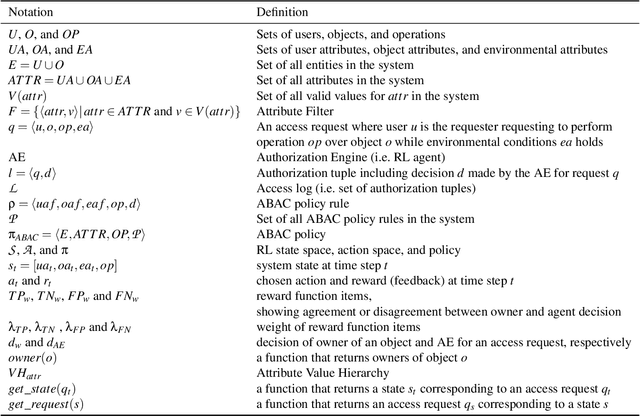
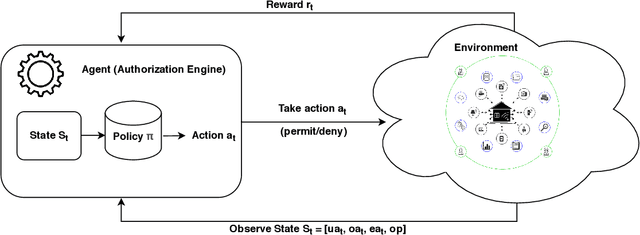
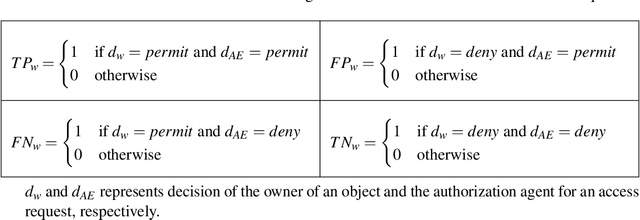
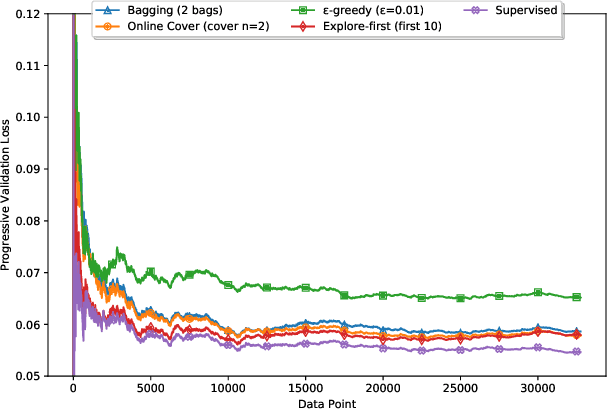
Abstract:With rapid advances in computing systems, there is an increasing demand for more effective and efficient access control (AC) approaches. Recently, Attribute Based Access Control (ABAC) approaches have been shown to be promising in fulfilling the AC needs of such emerging complex computing environments. An ABAC model grants access to a requester based on attributes of entities in a system and an authorization policy; however, its generality and flexibility come with a higher cost. Further, increasing complexities of organizational systems and the need for federated accesses to their resources make the task of AC enforcement and management much more challenging. In this paper, we propose an adaptive ABAC policy learning approach to automate the authorization management task. We model ABAC policy learning as a reinforcement learning problem. In particular, we propose a contextual bandit system, in which an authorization engine adapts an ABAC model through a feedback control loop; it relies on interacting with users/administrators of the system to receive their feedback that assists the model in making authorization decisions. We propose four methods for initializing the learning model and a planning approach based on attribute value hierarchy to accelerate the learning process. We focus on developing an adaptive ABAC policy learning model for a home IoT environment as a running example. We evaluate our proposed approach over real and synthetic data. We consider both complete and sparse datasets in our evaluations. Our experimental results show that the proposed approach achieves performance that is comparable to ones based on supervised learning in many scenarios and even outperforms them in several situations.
An Automatic Attribute Based Access Control Policy Extraction from Access Logs
Mar 17, 2020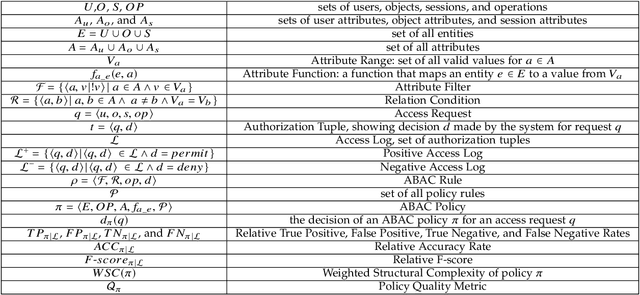


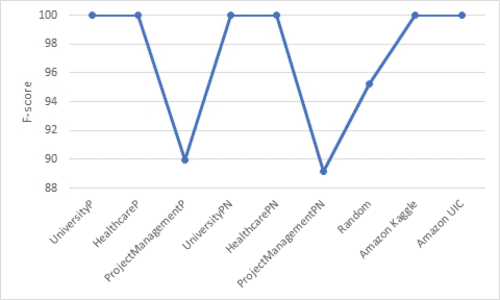
Abstract:With the rapid advances in computing and information technologies, traditional access control models have become inadequate in terms of capturing fine-grained, and expressive security requirements of newly emerging applications. An attribute-based access control (ABAC) model provides a more flexible approach for addressing the authorization needs of complex and dynamic systems. While organizations are interested in employing newer authorization models, migrating to such models pose as a significant challenge. Many large-scale businesses need to grant authorization to their user populations that are potentially distributed across disparate and heterogeneous computing environments. Each of these computing environments may have its own access control model. The manual development of a single policy framework for an entire organization is tedious, costly, and error-prone. In this paper, we present a methodology for automatically learning ABAC policy rules from access logs of a system to simplify the policy development process. The proposed approach employs an unsupervised learning-based algorithm for detecting patterns in access logs and extracting ABAC authorization rules from these patterns. In addition, we present two policy improvement algorithms, including rule pruning and policy refinement algorithms to generate a higher quality mined policy. Finally, we implement a prototype of the proposed approach to demonstrate its feasibility.
 Add to Chrome
Add to Chrome Add to Firefox
Add to Firefox Add to Edge
Add to Edge